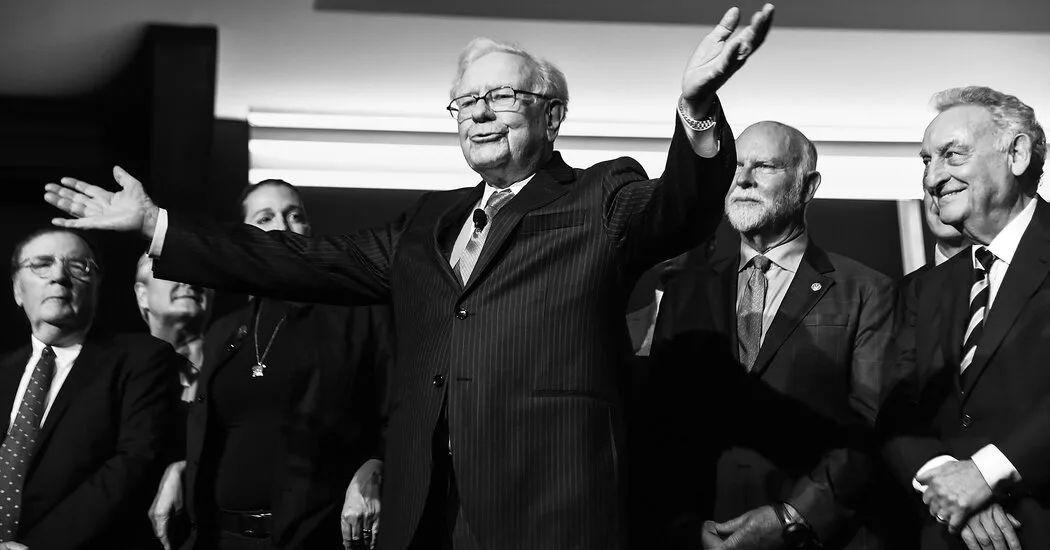

After six decades of pearly wisdom and investment gems, the news from Omaha hit like a thunderbolt.
As a fellow shareholder emailed me after Warren Buffett announced on Saturday that he would retire at the end of the year as chief executive of Berkshire Hathaway, “Even though we knew it was inevitable, Warren’s announcement today came as a shock to the system.”
In an age of insecurity, Mr. Buffett was an anchor of endurance. Since he took the helm of Berkshire — on May 10, 1965 — General Motors, then the largest American corporation, has greeted 11 new chief executives. Sears, Roebuck, the biggest retailer, has vanished from the scene. Eleven U.S. presidents have come and gone (two of them having survived impeachment and one forced to resign), and Coca-Cola changed its formula, but Mr. Buffett didn’t change his.
And it wasn’t just constancy. Berkshire’s stock that day in May closed at $18 a share. When he delivered the news, it was above $809,000 — almost 45,000 times as high. Over the same span, the Dow Jones industrial average is up just under 45 times.
For the uninitiated, that means his performance was, literally, a thousand times that of the blue-chip American index. Mr. Buffett was the best investor ever — no second choices. But as I wrote 30 years ago in a biography of him, “The numbers alone do not account for the aura.” Since his performance reflects his many decades of managing Berkshire’s investments, he is also among the greatest corporate leaders.
It was not just the math (Elon Musk is richer) but also the quality of his performance. To paraphrase the famous testimony of J.P. Morgan Sr., with whom Mr. Buffett is often compared, it was his character.
Mr. Buffett has long stood out on Wall Street because he eschewed its frequent chicanery, self-dealing and greed (and the double-talk that went with it). He revered the institutions of capitalism; most especially, he treated the executive’s duty to shareholders as a sacred trust.



